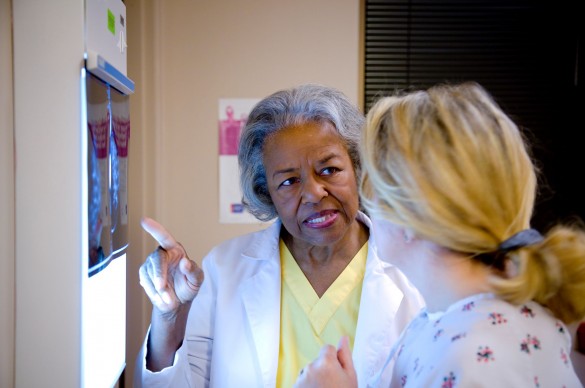Rep. Donald M. Payne, Jr. represents the 10th Congressional District of New Jersey.
One year ago today, I lost my father, the venerated Congressman Donald M. Payne, Sr, to colon cancer. To many, he is remembered as a dedicated public servant who proudly represented the people of New Jersey's Tenth Congressional District for nearly a quarter-century, working on the Committee on Education and the Workforce and the Committee on Foreign Affairs to create educational opportunities both in his district and worldwide, as well as working diligently to create jobs and develop workforce training programs. But to my sisters and me, we fondly remember him as Dad while my three children affectionately remember him as Grandpa, the kind man who loved us unconditionally. He was our friend, our mentor and our hero. After witnessing my father's heartbreaking battle with this sometimes fatal, yet preventable and treatable cancer, it became my mission to raise awareness about the importance of colorectal cancer screenings and early detection. That's why I introduced a bipartisan resolution in the House last month designating March 2013 as National Colorectal Cancer Awareness Month, and I'm happy to announce that a similar resolution, introduced by Senators Mike Enzi (R-WY), Frank Lautenberg (D-NJ) and Robert Menendez (D-NJ), passed in the Senate just last week. And I'm strongly urging my colleagues in Congress to support my resolution to raise awareness so that more people have the chance to avoid a devastating fight with this deadly disease. Colorectal cancer takes a tremendous toll on our country year after year it's the second leading cause of cancer death for men and women combined. Each year, more than 140,000 new cases of colorectal cancer are diagnosed and approximately 50,000 preventable deaths occur. In my state alone, an estimated 4,430 residents will be diagnosed with colon cancer and another 1,600 will die from the disease this year. Not only is it devastating to the people and families who are afflicted with the disease, but treatment of colon cancer is also a growing economic concern since medical expenditures related to colorectal cancer cost about $14 billion annually. The good news is colon cancer is very treatable if it is detected early. In fact, if Americans received regular screenings for colon cancer, half of all colon cancer deaths could be prevented. For every $1 spent on colorectal cancer screenings, $3 can be saved on treatment costs. Unfortunately, not everyone has access to or can afford these lifesaving screenings, or people choose to forgo screenings due to the perceptions surrounding testing. But through the free preventative services outlined in the Affordable Care Act, adults over age 50 can get their recommended colorectal cancer screenings at no cost. Additionally, the CDC's Colorectal Cancer Control Program (CRCCP), provides funding to 25 states and four tribal organizations to conduct education, awareness, and screening programs for low-income and uninsured Americans. The bottom line is that preventing colorectal cancer and saving lives begins with raising public awareness about screenings and symptoms, and we can achieve that through federal, state, and local education efforts. I'm working diligently with my colleagues in the House to pass our resolution so that we can continue to raise awareness, educate, and help save millions of lives.

